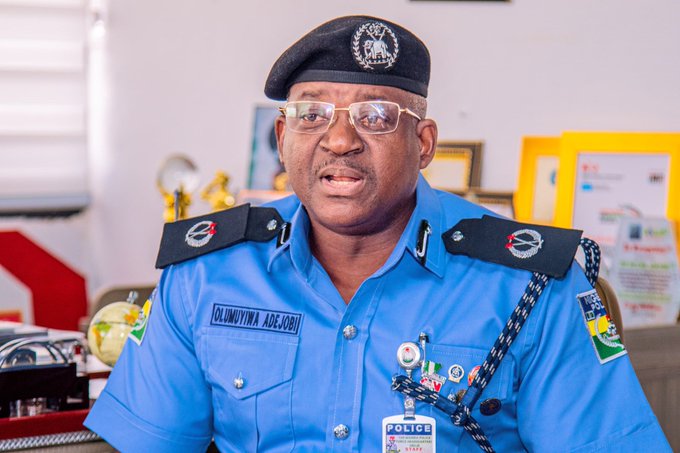The Nigeria Police Force has firmly reiterated its stance on the prohibition of firearm licenses, rejecting growing public appeals for self-defense measures amidst escalating insecurity. The nation grapples with a surge in kidnappings, violent attacks, and communal clashes, leading prominent figures and ordinary citizens alike to demand the right to bear arms for personal protection. This escalating security crisis has ignited a contentious debate between the authorities, who emphasize the risks of arms proliferation, and a populace increasingly desperate for security in the face of perceived government inaction.
The call for self-defense has gained momentum, particularly in regions heavily impacted by violence. Retired Lieutenant General Theophilus Danjuma, a former Defence Minister, has publicly advocated for citizens to take up arms, arguing that the government’s inability to provide adequate security leaves individuals with no other recourse. His sentiments reflect a growing distrust in the state’s capacity to protect its citizens, a sentiment fueled by frequent reports of unchecked violence and a perceived lack of effective law enforcement response. This call to arms has resonated deeply within communities bearing the brunt of the insecurity, particularly in areas like Plateau State, where frequent attacks have resulted in significant casualties and widespread fear.
In Plateau State, stakeholders, including security personnel, have echoed Danjuma’s position, emphasizing the urgent need for self-defense mechanisms in the face of relentless attacks. They argue that the right to self-preservation is paramount, especially when the state struggles to provide adequate protection. The escalating death toll and the constant threat of violence have led many to believe that self-defense is the only viable option for survival. This perspective highlights the deep sense of vulnerability and desperation felt by those living in affected areas, who see access to firearms as a crucial means of protecting themselves and their families.
Despite the growing clamor for self-defense measures, the Nigeria Police Force maintains its unwavering stance on the firearms ban. Force Public Relations Officer, Muyiwa Adejobi, has categorically stated that the ban on issuing firearm licenses remains firmly in place. This position underscores the government’s concern over the potential for further escalation of violence and the risk of arms falling into the wrong hands. The authorities argue that relaxing firearm restrictions would exacerbate the already precarious security situation by fuelling an arms race and empowering criminal elements.
The police’s decision to suspend the issuance of small arms licenses in 2023 stemmed from concerns about the alarming rate of illegal weapons proliferation. The government contends that a surge in privately owned firearms would further destabilize the country, making it more challenging to control the flow of weapons and maintain law and order. The existing Firearms Act of 2024 grants exclusive authority to the President and the Inspector General of Police to issue firearm licenses, reflecting the government’s intention to maintain strict control over the possession and circulation of weapons.
The legal framework surrounding firearm ownership in Nigeria carries severe penalties for unauthorized possession. The Robbery and Firearms (Special Provisions) Act of 2004 stipulates a minimum sentence of 10 years imprisonment, a fine of ₦20,000, or both, for individuals found in possession of firearms without proper licensing. This stringent legal framework underscores the government’s commitment to curbing illegal arms proliferation and maintaining its monopoly on the legitimate use of force. The ongoing debate highlights the complex balancing act between the right to self-defense and the need to control the spread of weapons in a volatile security environment. The government’s firm stance on the firearms ban reflects its prioritization of national security and its apprehension regarding the potential consequences of widespread private gun ownership.














